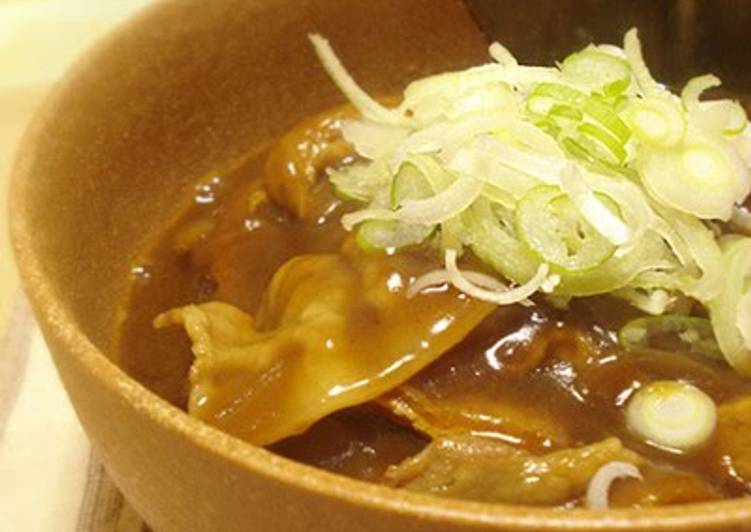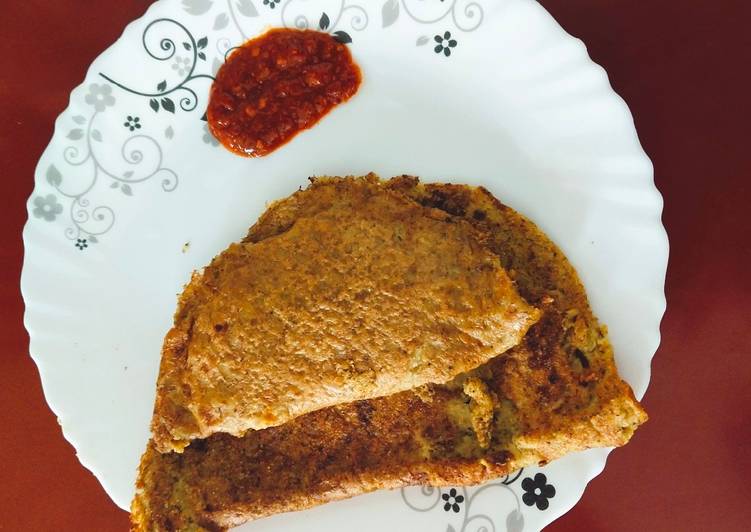
Hey everyone, it’s Jim, welcome to our recipe site. Today, I will show you a way to make a distinctive dish, restaurant quality curry udon noodles. It is one of my favorites food recipes. For mine, I am going to make it a little bit tasty. This will be really delicious.
Restaurant Quality Curry Udon Noodles is one of the most popular of recent trending foods on earth. It’s appreciated by millions daily. It is easy, it’s fast, it tastes yummy. Restaurant Quality Curry Udon Noodles is something which I have loved my entire life. They are fine and they look wonderful.
Thick chewy udon noodles soaked in a rich, fragrant curry sauce. This Curry Udon will satisfy This Japanese Curry Udon will satisfy your noodles craving in an instant. Bonus: it's simple We currently live in Okinawa and have had the joy of having curry udon at one of the local udon restaurants here.
To get started with this particular recipe, we must first prepare a few components. You can have restaurant quality curry udon noodles using 16 ingredients and 24 steps. Here is how you can achieve it.
The ingredients needed to make Restaurant Quality Curry Udon Noodles:
- Prepare 45 ml Mentsuyu soup(or use your favorite soup)
- Make ready 1/8 cube A - Store-bought curry roux
- Take 1 japanese tea scoop A - Soy sauce (optional)
- Get 1 to 1 and 1/2 tablespoons Katakuriko
- Prepare 1/2 Thin aburaage
- Make ready 80 grams Any meat you like
- Prepare 1/4 to 1/5, medium Onion
- Take 1 pack Udon noodles
- Get 1 heaped tablespoon Sake
- Get 1 Japanese leeks (or any green onion or leeks you like)
- Make ready If you don't have mentsuyu for the soup base, combine the ingredients below in a pot at Step 1
- Get 30 ml Mirin
- Prepare 10 ml Sake
- Get 10 ml Usukuchi soy sauce
- Take 20 ml Soy sauce
- Take 340 ml Japanese dashi stock (or water + 2 teaspoons od dashi powder)
When I first saw Curry Udon, I was like……. Restaurant Quality Curry Udon Noodles カレーうどん. We visited this lovely little udon noodle restaurant after going to the Fushimi Inari Shrine. I just wanted to dig in.
Instructions to make Restaurant Quality Curry Udon Noodles:
- Refer to. Put 360 ml of water and the soup base ingredients above in a sauce pan to make 405 ml of broth. This is the best ratio, I think. - - https://cookpad.com/us/recipes/170505-concentrated-all-purpose-mentsuyu
- If you use store-bought noodle soup, mix the concentrated soup with 3 times the amount of water to make 400 ml of broth, or refer to the recipe below.
- Normally the ratio of 100 ml of concentrated mentsuyu soup base + 300 ml of water works well, but it differs according to the packages, so refer to the recipe below.
- Pour boiling water over the aburaage to remove excess oil and cut into 1 cm batons. Thinly slice the onion. Cut the meat into bite sized pieces.
- Slice the Japanese leek whatever way you like.
- Dissolve katakuriko with water to prepare a slurry. Stir well just before using during Step 16.
- Put Step 1 over heat and bring to a boil. Add Step 4 and simmer for 4 minutes. Keep the heat at low-medium to gently simmer the soup.
- If the heat is too high or the soup simmers too long, the soup is going to reduce too much. Follow the listed cooking time and keep it at the right heat.
- After Step 7 has simmered for 4 minutes, add the "A" ingredients. After the roux has melted completely, go to Step 13. If the udon noodles are not ready, turn off the heat.
- Place the udon noodles on a plate and sprinkle sake and microwave (I do it for a minute at 600 W).
- If you use frozen udon noodles, heat for 2.5-3 minutes at 600 W. You only need to defrost and flavour with sake here as the noodles will be cooked in the soup later.
- If you use dried udon noodles, cook for 1 minute less than instructed on the package, wash in cold water, and drain in a sieve. The udon noodle preparation should be done at the same time as Step 7.
- Add prepared udon noodles in Step 9 and cook for 1.5 minutes. The heat should be high at first, then reduced to low once it comes to a boil.
- Simmering the udon noodles in the soup is the key to this recipe. If you the cook the noodles separately and combine with the broth just when serving, they won't have the same deep flavor.
- I used to do like Step 14 when I was a student, but udon noodles cooked in base is much better.
- Add Step 6 to 13 to thicken and transfer to a serving bowl. In this photo, I used chicken and 1 tablespoon of katakuriko.
- Add more katakuriko if you prefer a thicker soup. This is the same photo as the profile photo with 1.5 tablespoons of katakuriko.
- Garnish with chopped Japanese leek. Serve and sprinkle shichimi spice if you like.
- I dislike curry udon that's just udon with curry poured over, but I also dislike curry that's thin and runny. I like this dish's thickness; it's just right.
- After many trials, this ratio of the curry roux and soup is the best. I like the abura-age absorbed with sweet-tasting onion and curry flavour.
- You can make a restaurant-quality dish at home easily. My long-time trials achieved this taste. Give it a try!
- 1 cube of curry roux is about 18 g. One packet of House brand curry roux usually has has 6 cubes. Use whatever roux you like.
- This concentrated noodle soup is very tasty with a savory bonito taste. I recommend this. - - https://cookpad.com/us/recipes/170505-concentrated-all-purpose-mentsuyu
- . This is made with Japanese dashi powder. You can make this in 5 minutes and use as it is. I recommend this, too!
I ordered a beef curry udon noodles. It was a thicker broth and had a tiny bit of a kick, so so delicious and satisfying.. There aren't enough food, service, value or atmosphere ratings for Curry Udon Specialty restaurant Ganbariya, Japan yet. Be one of the first to. If you haven't tried udon noodles: they are a thick noodle used in many Asian recipes.
So that’s going to wrap this up with this special food restaurant quality curry udon noodles recipe. Thank you very much for reading. I am confident you will make this at home. There’s gonna be more interesting food at home recipes coming up. Don’t forget to bookmark this page in your browser, and share it to your family, friends and colleague. Thank you for reading. Go on get cooking!


